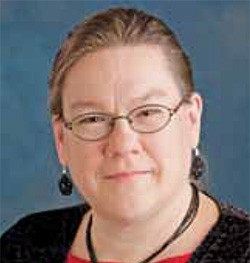
The story of the U-M School of Social Work comes alive through the experiences of its students and alumni. Your story reveals the history of the School, and your achievements make us proud. On the following pages you will meet two students and seven alumni. They share their thoughts on some of the following questions: How has the field of social work changed? How do you view the future of social work? What does the U-M SSW tag line, “reach out—raise hope—change society,” mean to you?
Josue “Joshua” Osegueda - MSW student
Josue was inspired to become a social worker through a variety of personal and professional experiences. As a child, he struggled with life in a low income family. Though his parents encouraged him to work hard in school, his family moved several times and the instability made it difficult for him to complete schoolwork. Consequently, Josue’s education inadequately prepared him for community college. Josue is the first in his family to go to college and the first to pursue a graduate degree.
Using academic and mentoring services, Josue eventually attended UCLA and studied psychology. After graduation, Josue dedicated his time to serving atrisk youth in his neighborhood to improve outcomes of substance-abusing youth and gang members. With quality education, Josue explains, one has hope for the future, a goal to work toward, and a reason to avoid drugs and gangs. Using an empowerment framework, he helped students with practical skills to work toward the goal of pursuing education.
A child welfare scholar, Josue is studying social policy and evaluation as it impacts children and youth in families and society and is particularly interested in foster care children. He is passionate about educational reform and hopes to work at the national level as a policymaker. “I worked with these kids. I’ve asked, ‘What do you want?’ and they wanted afterschool programs and safe spaces for fun.”
Josue says that the current state of social work is a scary place because of budget cuts at the state and national levels. “We need to push for social work and social services, and we need to advocate our values to other professionals.” Josue believes in raising hope by giving youth a future to hope for through early education.
—Ruth Spalding earned an MSW in April 2011 with a concentration in Interpersonal Practice and Mental Health.
Claudette L. Grinnell-Davis - PhD candidate in social work and psychology (personality & social contexts)
Claudette became interested in social work at seminary when she started thinking about the role that faith communities are supposed to have in caring for vulnerable people, particularly children. After earning her MSW at Western Michigan University and working in child welfare contexts, she began the U-M joint doctoral program.
Claudette’s research involves understanding how societal factors, such as poverty and violent neighborhoods, interact with such risk factors as the parent’s history of abuse and the child’s temperament to lead to child welfare involvement. Her motivation for advancing this understanding is to help inform interventions that allow families to cope effectively in stressful situations.
“We need to stop paying lip service to family preservation and give parents the help they really need,” Claudette explains. “Investing in the future of children means investing in their parents. My ministry training taught me that no one is beyond redemption, including ‘offenders’ or ‘perpetrators.’”
She also emphasizes that social work as a research discipline needs to find ways to bridge the gap between what we learn from data and what practitioners in the field discover by either working with families or creating policy. The gap between the frontline social worker and research, especially in child welfare, is significant, she says.
“The obvious place to focus treatment in child welfare is in the parent-child relationship,” says Claudette. “But data also show that the parent not only has to navigate tensions within the parent-child relationship but also has to buffer the child from other threats such as unhealthy extended families, violent neighborhoods, and economic instability. Do our interventions indicate an understanding of how these stressors affect parenting? I am not convinced they do. And that is the gap I hope someday to start filling through my work.”